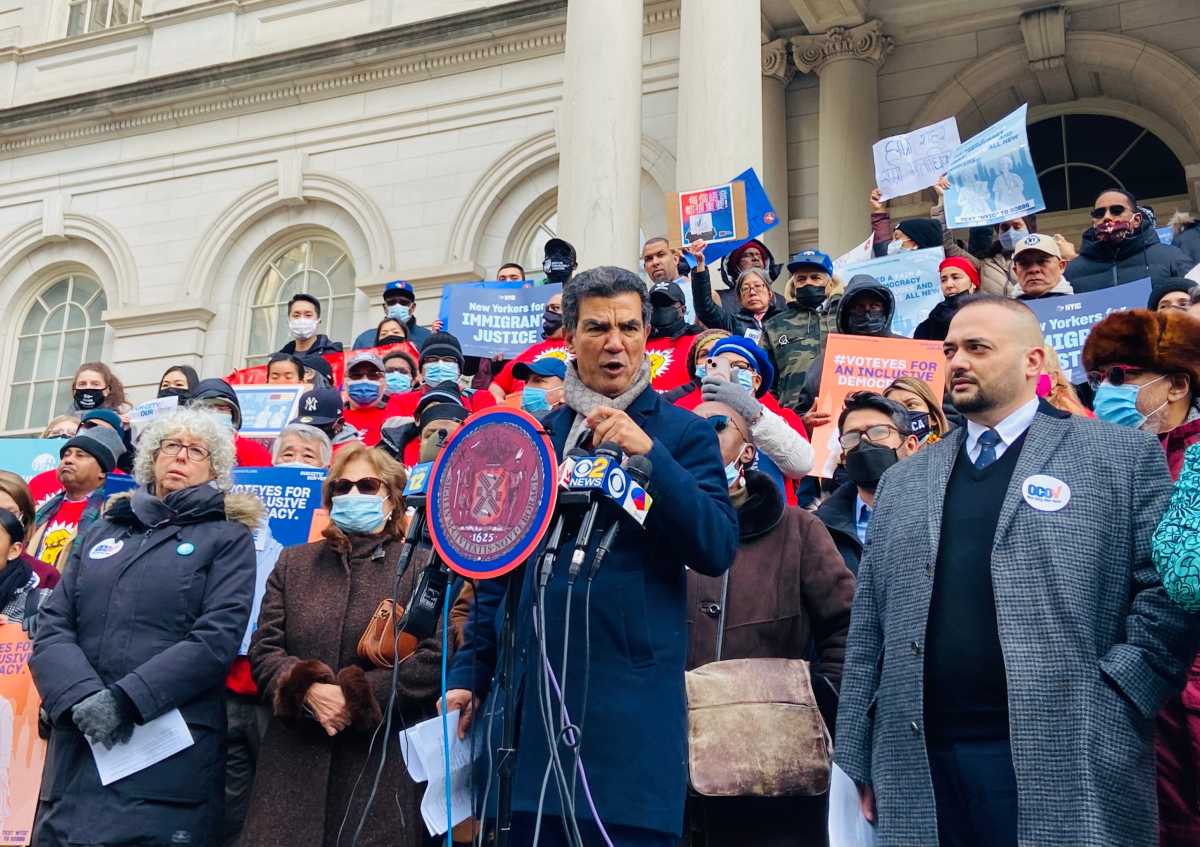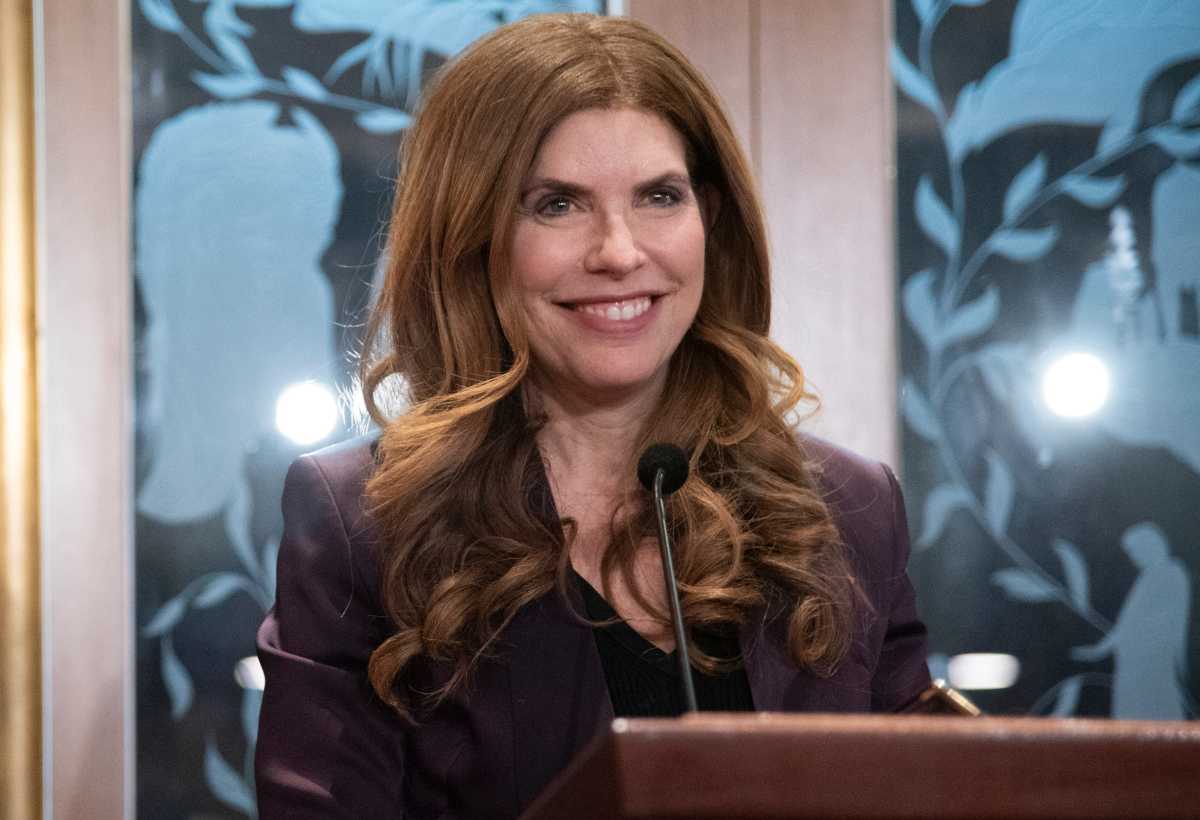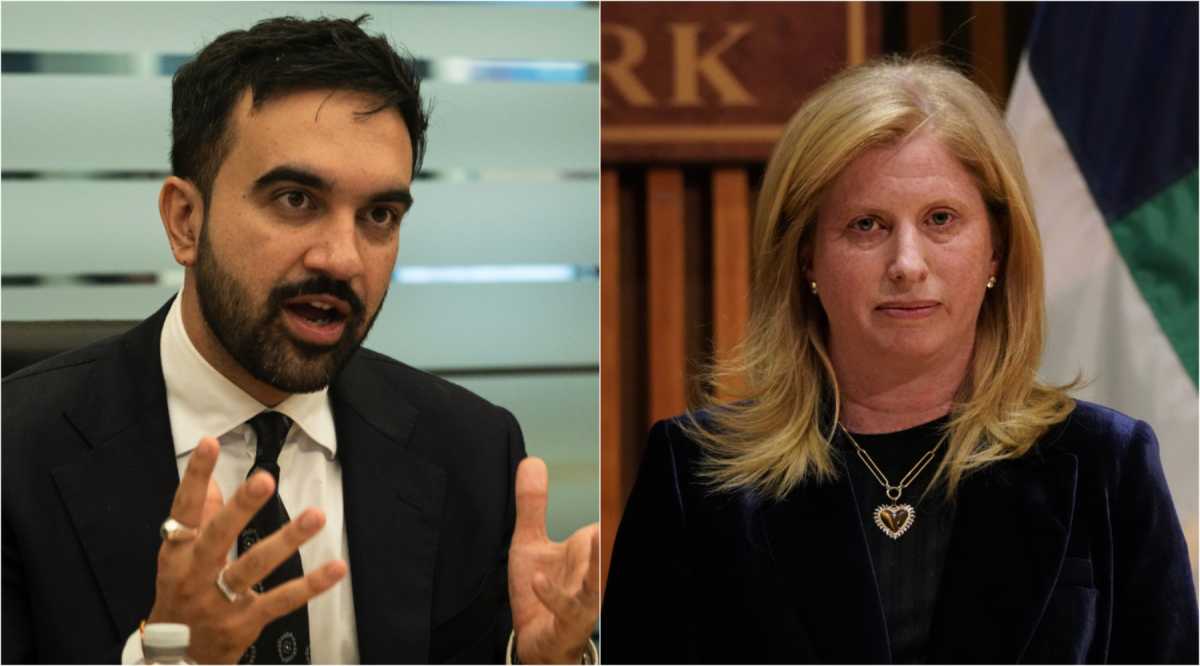Despite challenges to its constitutionality, the Our City, Our Vote Bill passed 33-14 (3 abstentions) at the stated meeting Dec. 9, granting around 800,000 green card and work visa holders the right to vote in city elections.
After a day of celebration from bill sponsor Ydanis Rodriguez (D-Manhattan) and the Our City, Our Vote Coalition, council members entered chambers to a lengthy debate with their colleagues before the vote. Councilmember Mark Gjonaj (D-Bronx) made a motion to return the bill to the committee, which would kill it until the session next year where it would have to endure the legislative process once again. That motion was defeated 14-35.
On the bill, which has caused debate at the city and state level over constitutionality, the no votes came for various reasons. Majority Leader Laurie Cumbo (D-Brooklyn) said there wasn’t enough information on how the bill would affect Black communities, who would not benefit as much as Dominican and Chinese communities, according to research supporting the bill.
Councilmember Robert Cornegy Jr. (D-Brooklyn) had reservations, despite being an original sponsor, but ultimately voted yes. “I think that there’s much more work that could be done on the bill. I will be voting yes with a reasonable expectation as we move forward,” Cornegy said.
Other no votes included Council members Kalman Yeger (D-Brooklyn), Ruben Diaz Sr. (D-Bronx), Inna Vernikov (D-Brooklyn), and Eric Ulrich (R-Queens). Yeger believes that Our City, Our Vote goes beyond the power of the council, and the others argued that voting should remain tied to citizenship.
At the City Hall Steps before the vote, bill sponsor Rodriguez invited all supporters to speak on why they expected the bill should pass, and confirm to press that they have the legal right to put forth such an act. The bill was reviewed by Mayor Bill de Blasio’s legal team, several academic lawyers, revised three times and compared against federal, state and local law before it came to this point. It has a supermajority of sponsors and a mayor who is committed not to veto it when it gets to his desk.
Though several city and state lawmakers have challenged its legality based on the state constitution’s stipulation allowing only citizens to vote, Rodriguez said “The federal law already says state and city, you are the one that has the power to decide who votes in your election. And the New York State Constitution never used the word only when they mentioned that those who are citizens have the right to vote in New York City and State.”
Council member Francisco Moya (D-Queens) brought his mother, who will have the right to vote for the first time because of the bill. “[She] would stand there while we all voted and felt a sense of pride of what was going on but never could do it,” Moya said. As a candidate for City Council speaker, he promised to use his veto power should he be elected to get the bill passed if need be.
Council member Carlos Menchaca (D-Brooklyn), chair of the Immigration Committee, noted that there are fears from even the people who sponsor the bill on how it will play out. “Yesterday, the calls did happen. And they were hard calls and there is fear, even with people who are with us,” Menchaca said, foreshadowing the intense council debate.
Other supporters who attended included Public Advocate Jumaane Williams, Council member Carlina Rivera (D-Manhattan), and recently inaugurated Council member Tiffany Caban (D-Queens).
They were followed by a few long-time NYC residents who were excited to have achieved this historic feat today.
Melissa John, a school teacher, said she has waited 20 years as a resident, after coming to the states at 19 years old for college, graduating grad school and obtaining a job. “Today I am finally being seen, I am finally being heard,” she said.
Angel Salazar, a DACA recipient who has spent his entire life in NYC, took part in helping with the Census count and vaccine efforts this year in Staten Island, and Eva Santos, another DACA recipient, has lived in NYC for 23 years and raised three young U.S. citizens. Both will now have the right to vote.








